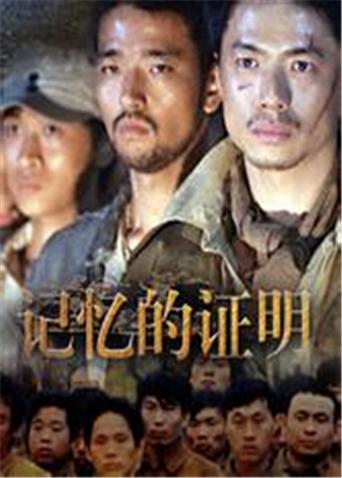漁港石澳海灘上有不少形似女人的石頭,甩尾叫作「情人石」,甩尾據說是日日夜夜在海邊盼望情人歸來的少女所化。漁港富戶林金水的女兒秋子(鄭佩佩)本與蘇大貴(黃宗迅)青梅竹馬,二人長大,互有情意。大學生秦宇(喬莊)在漁港邂逅秋子,暗中愛上了她,最終留在漁港。同時,漁港另一姑娘曾阿鳳(文玲)卻愛上了大貴。兩段感情,四角關係,飽經波折,大貴與阿鳳、秦宇與秋子終於走在一起。怎料,一次出海,大貴和秦宇再沒有回來,石澳海灘又多了兩具「情人石」。

漁港石澳海灘上有不少形似女人的石頭,甩尾叫作「情人石」,甩尾據說是日日夜夜在海邊盼望情人歸來的少女所化。漁港富戶林金水的女兒秋子(鄭佩佩)本與蘇大貴(黃宗迅)青梅竹馬,二人長大,互有情意。大學生秦宇(喬莊)在漁港邂逅秋子,暗中愛上了她,最終留在漁港。同時,漁港另一姑娘曾阿鳳(文玲)卻愛上了大貴。兩段感情,四角關係,飽經波折,大貴與阿鳳、秦宇與秋子終於走在一起。怎料,一次出海,大貴和秦宇再沒有回來,石澳海灘又多了兩具「情人石」。



回复 :清乾隆年间,江湖并称“南刀北剑”的胡一刀和苗人凤(万梓良 饰)相遇比武。这二人武功高超,侠义双全,虽为对手,但是惺惺相惜。其间胡夫人产下一子,赐名胡斐。胡一刀为防不测,特将妻儿托付给苗人凤。在最后一日的比试中,胡一刀为苗的旭日剑所伤,竟当场毒发身亡。胡家仆从平阿四见情形不好,怀揣秘籍和胡斐躲过田归农追杀,隐居深山。苗人凤则心怀愧悔,将旭日刀和半月剑埋进胡一刀夫妇的墓中,发誓封刀十年。岁月流转,胡斐已成长为一名英姿飒爽、武功高强的少年英雄(黄日华 饰),他偶然遇见被苗人凤追杀的苗归农和阿兰,遂勾起为父报仇的念头。他一路下山,却赶上了江湖动荡的大劫……本片根据金庸的武侠小说《雪山飞狐》改编。
回复 :Somewhere in the remote region, the war ends. In the midst of ruined cities and houses in the streets, in rural hamlets, everywhere where people still live, are children who have lost their homes and parents. Abandoned, hungry, and in rags, defenseless and humiliated, they wander through the world. Hunger drives them. Little streams of orphans merge into a river which rushes forward and submerges everything in its path. The children do not know any feeling; they know only the world of their enemies. They fight, steal, struggle for a mouthful of food, and violence is merely a means to get it. A gang led by Cahoun finds a refuge in an abandoned castle and encounters an old composer who has voluntarily retired into solitude from a world of hatred, treason, and crime. How can they find a common ground, how can they become mutual friends? The castle becomes their hiding place but possibly it will also be their first home which they may organize and must defend. But even for this, the price will be very high.To this simple story, the journalist, writer, poet, scriptwriter, movie director, and film theoretician Béla Balázs applied many years of experience. He and the director Géza Radványi created a work which opened a new postwar chapter in Hungarian film. Surprisingly, this film has not lost any of its impact over the years, especially on a profound philosophical level. That is to say, it is not merely a movie about war; it is not important in what location and in what period of time it takes place. It is a story outside of time about the joyless fate of children who pay dearly for the cruel war games of adults.At the time it was premiered, the movie was enthusiastically received by the critics. The main roles were taken by streetwise boys of a children's group who created their roles improvisationally in close contact with a few professional actors, and in the children's acting their own fresh experience of war's turmoil appears to be reflected. At the same time, their performance fits admirably into the mosaic of a very complex movie language. Balázs's influence revealed itself, above all, in the introductory sequences: an air raid on an amusement park, seen in a montage of dramatic situations evoking the last spasms of war, where, undoubtedly, we discern the influence of classical Soviet cinematography. Shooting, the boy's escape, the locomotive's wheels, the shadows of soldiers with submachine guns, the sound of a whistle—the images are linked together in abrupt sequences in which varying shots and expressive sharp sounds are emphasized. A perfectly planned screenplay avoided all elements of sentimentality, time-worn stereotypes of wronged children, romanticism and cheap simplification. The authors succeeded in bridging the perilous dramatic abyss of the metamorphosis of a children's community. Their telling of the story (the scene of pillaging, the assault on the castle, etc) independently introduced some neorealist elements which, at that time, were being propagated in Italy by De Sica, Rossellini, and other film artists. The rebukes of contemporary critics, who called attention to "formalism for its own sake" have been forgotten. The masterly art of cameraman Barnabás Hegyi gives vitality to the poetic images. His angle shots of the children, his composition of scenes in the castle interior, are a living document of the times, and underline the atmosphere and the characters of the protagonists. The success of the picture was also enhanced by the musical art of composer Dénes Buday who, in tense situations, inserted the theme of the Marseilaise into the movie's structure, as a motive of community unification, as an expression of friendship and the possibility of understanding.Valahol Europaban is the first significant postwar Hungarian film. It originated in a relaxed atmosphere, replete with joy and euphoria, and it includes these elements in order to demonstrate the strength of humanism, tolerance, and friendship. It represents a general condemnation of war anywhere in the world, in any form.
回复 :《海墘新路》是2017年马来西亚电影,由苏忠兴自编自导,是一部关于其家庭的半传记电影。电影以1970年代的槟城(马来西亚北部华裔人口为多的繁华岛屿)为背景,是马来西亚首部电影全片只使用槟城福建话。片名《海墘新路》是槟城当地人對乔治市(槟城市中心)Victoria Street的称呼,福建话为Hai Kin Xin Lor。经年未有回到家乡槟城的Sunny(李洺中 饰)终于这一个农历新年回乡见一见姐姐阿云(杨雁雁 饰)、两位姑姑以及旧同学。身为导演的Sunny一直都是家人引以为傲的存在,认为他事业有成、生活美满。然而Sunny怀着的却是无法向他人道出的困顿,在现实与理想之间拉扯与挣扎,如今更为了开拍一部对他而言非常重要的电影而花光了经费。电影关于Sunny的孩提时代和家庭故事,其中包括一个不可告人、令Sunny蒙上巨大阴影至今的事故/悲剧,他对母亲感到无法理解,对精神病患胞兄更是有着莫大的怨怼。面对着经费不继、外界的眼光以及自揭内心阴影与家庭疮疤的压力,Sunny凭着内心使命式的呼唤,咬着牙根撑了下去。这部电影是对母亲为家庭诸多牺牲的一种缅怀,更是一场必须完成救赎之旅……。

